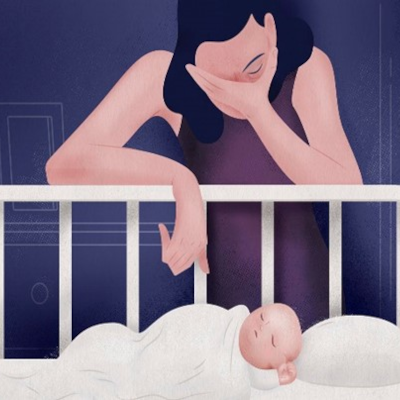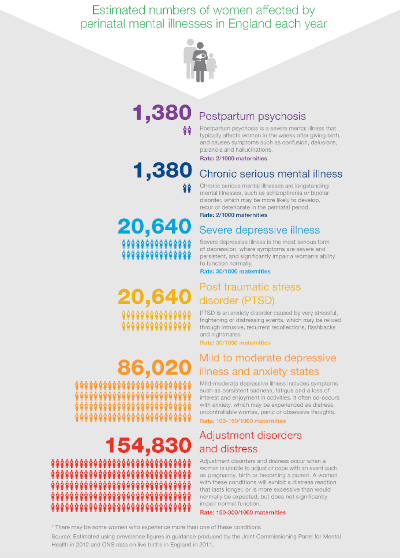Maternal Mental Health and TMS
March 31, 2022 - Smart TMS

The moment a child is born, the mother is also born. She never existed before. The woman existed, but the mother, never. A mother is something absolutely new. ~ Rajneesh Look.
Around the world, different traditions celebrate important life passages like motherhood, to signify a major transition that will irrevocably influence the life of the woman who is giving birth. Pregnancy is a time of rapid change in a woman’s body both physically and mentally, through increased hormone production. Hormones alter the brain structure functionally and irreversibly, not only during pregnancy but during birthing process, with these changes being reinforced by the bonding process.
In fact, during pregnancy the ‘brain morphing’ process involves clipping off some of the neural pathways of Maidenhood that will no longer be utilized. In the weeks just prior to birth, reshaping the brain to a ‘Mummy brain’ occurs by adding new neural-chemical pathways, constructing large networks of maternal circuits in a process known as ‘nesting’. Researchers tell us that a ‘Mummy brain’ is larger, more competent and has in-built mechanisms to increase risk-taking, grant courage and be more ‘on alert’.
However, along with these positive changes, organizations worldwide are attempting to increase awareness of the mental health issues associated with pregnancy. An estimated 300,000 in England and 1.3m around the world are affected by some form of perinatal mental health disorder.
Perinatal depression

Perinatal depression is depression that occurs during or after pregnancy. The symptoms can range from mild to severe. In rare cases, the symptoms are severe enough that the health of the mother and baby may be at risk. Symptoms may include insomnia, anxiety, irritability, loneliness, poor attachment with the infant, a strained relationship with others, obsessive ideation, intrusive thoughts, suicidal ideation, excessive guilt, feeling overwhelmed, decreased sex drive, fatigue, concentration/memory problems, and anhedonia may also be present. These symptoms can especially be of issue for Mothers separated from their child due to COVID infections.
What is the difference between ‘baby blues’ and perinatal depression?
The ‘baby blues’ is a brief period of low mood, feeling emotional and tearful up to 10 days after you give birth, related to the lack of sleep and new demands. This feeling is usually manageable and only lasts a few days. Perinatal depression is more long terms and usually develops during pregnancy or within 6 weeks of giving birth and it can be either gradual or sudden.
“I felt selfish and guilty for feeling negative and low. This made me isolate myself further and compounded the problem.”
Causes of perinatal depression
Research suggests that the causes of perinatal depression are a combination of genetic and environmental factors. The changes in hormones mentioned previously, personal or family history of depression or bipolar disorder, life stress can all increase the risk of perinatal depression.
TMS as treatment
Antidepressant therapy is frequently used to treat perinatal depression but they can take time to be effective and have significant side effects during pregnancy and while breastfeeding. For mothers who would prefer to remain drug-free or are treatment resistant, TMS provides a very reasonable and effective therapy that has been shown to have no negative effects on the mother or the baby.
One of the first studies of rTMS in postpartum depression was done in 1999 on a patient with severe recurrent depression after her 2nd child. After receiving high frequency TMS to the left prefrontal cortex her scores reduced to subclinical levels. These results set the ground for further research in larger cohorts, such as a 2020 study in which high frequency TMS was applied to the left prefrontal cortex, resulting in 67% of patients achieving remission and 100% of patients showing lasting improvements in symptoms according to their psychometric scores, even 6 months after the treatment.
TMS has been approved for use in depression and we provide it as treatment for OCD, addictions, PTSD and may be of great clinical benefit in the perinatal period with no side effects and allowing the mother to still breastfeed.
Self-care for perinatal depression
Experiencing perinatal depression can be very difficult, but these are some steps you can take that might help:
1 . Be kind to yourself
You might have many expectations for yourself as a parent, but none of us can meet all our expectations all the time.
Don’t beat yourself up if you don’t do something you planned to, or if you find yourself feeling worse again. Try to treat yourself as you would treat a friend, and be kind to yourself.
2 . Keep a mood diary
This can help you keep track of any changes in your mood, and you might find that you have more good days than you think. This can also help you notice if any activities, places or people make you feel better or worse.
3. Look after your hygiene
When you’re experiencing depression, it’s easy for hygiene to not feel like a priority. But small things can make a big difference to how you feel. For example, you could take a shower and get dressed, even if you’re not going out of the house.
4. Speak to people with similar experiences
Often we can feel that we are the only ones feeling how we do. There are peer support and advice groups available to share thoughts, feelings and experiences.
Contact Mind’s Infoline or visit a local Mind to find out about peer support options in your area.
5. Ask for help
PANDAS offers information and support for people experiencing antenatal and postnatal depression.
Where possible, ask for and accept help from those around you. Practical and emotional support from family, friends and community can be vital in helping you to cope.
Author, Roxy Ioan,
Smart TMS Hampshire Practitioner
References:
Maternal Mental Health and TMS-Part One: Transcranial Magnetic Stimulation in the Treatment Of Postpartum Depression (PPD) | Clinical TMS Society
Perinatal depression – Mind
Motherhood as a Rite of Passage | HuffPost Life










